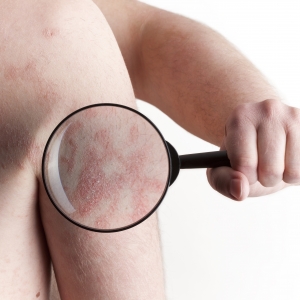
Dr. Kevin McKerrow
DERMATOLOGIST
+ SEE BIO
Eczema is a general term for all types of dermatitis. It is a common skin condition characterised by the inflammation, swelling or irritation of the skin. It often begins in infancy or early childhood, but can also start in young adults, or even later in life.
The condition appears in many forms, with the most common forms being atopic dermatitis, allergic contact dermatitis, discoid eczema, dyshidrotic eczema, eczema craquele and venous eczema. These forms of eczema are usually distinguished based on age of onset, clinical appearance, history and the sites involved.
The exact cause of eczema is unknown, however genetic and environmental influences are significantly important. People with eczema often have relatives with eczema or sensitive skin and asthma or hayfever. Patients with eczema have a problem with their skin barrier function, resulting in water loss from the skin, leaving it dry, scaly and vulnerable to allergens, infections and irritants.
The exact cause of eczema is unknown, however genetic and environmental influences are significantly important. People with eczema often have relatives with eczema or sensitive skin and asthma or hayfever. Patients with eczema have a problem with their skin barrier function, resulting in water loss from the skin, leaving it dry, scaly and vulnerable to allergens, infections and irritants.
Eczema is usually a long-term problem. While it cannot be cured, the condition can certainly be controlled. The suggested approach for management of eczema includes: